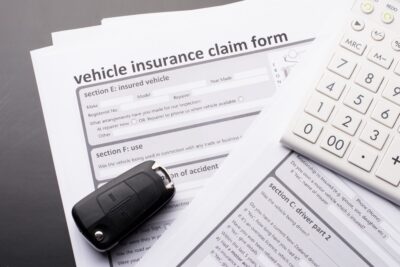
Being in a car accident is a traumatic experience that can leave you feeling confused and overwhelmed. One of the things that you may be asked to do is provide a recorded statement to your insurance company. While it may seem like a good idea to cooperate fully with your insurer, there are some things you should consider before agreeing to provide a recorded statement.
It is essential to seek legal advice from a car accident attorney at John Foy & Associates if you have concerns about providing a recorded statement to your insurance company.
A Recorded Statement
A recorded statement is an official interview conducted by an insurance adjuster after a car accident. The adjuster will ask you about the accident, including how it happened, who was involved, and whether anyone was injured. The statement is usually recorded and may be used as evidence in any legal proceedings related to the accident.
The purpose of the recorded statement is to help the insurance company determine who was at fault for the accident and how much compensation they may owe you.
Get the strong arm
Why Do Insurance Companies Want a Recorded Statement?
Insurance companies may want a recorded statement from you after a car accident for a few reasons. First, they want to clearly understand what happened during the accident, including who was involved and how it occurred. The insurance adjuster will ask you a series of questions about the accident, which will help them determine who was at fault for the accident.
Secondly, insurance companies use recorded statements to assess the damages and injuries sustained in the accident. The adjuster will ask you questions about any injuries you sustained, the medical treatment you have received, and any ongoing medical issues related to the accident. This information will determine the value of your claim and how much compensation you may be entitled to.
Additionally, a recorded statement can be used as evidence in any legal proceedings related to the accident. If the case goes to court, the recorded statement can be used to support or challenge any claims made by either party. Therefore, it is important to be truthful and accurate in your recorded statement, as anything you say can be used against you in court.
Should You Provide a Recorded Statement?
Whether you should provide a recorded statement after a car accident depends on several factors. If you feel confident that you can accurately and truthfully recount what happened during the accident, then providing a statement may help speed up the claims process. In such cases, providing a recorded statement can be beneficial as it can provide the insurance company with the necessary information for processing your claim quickly and efficiently.
However, if you are unsure of what happened or are still in shock from the accident, it may be best to wait until you have had time to process the event and speak to an attorney. You should never feel pressured to provide a recorded statement and have the right to consult an attorney before deciding.
Moreover, knowing the potential risks involved in providing a recorded statement is important. Anything you say can be used against you in court, so it is important to be careful and truthful when answering questions. Insurance adjusters may also ask questions in a way that may be misleading or confusing, so it is essential to be cautious when answering their questions.
Potential Risks of Providing a Recorded Statement
Providing a recorded statement after a car accident can be risky, as anything you say can be used against you in court. The following are some potential risks associated with providing a recorded statement:
- Inconsistencies: If you accidentally say something that is not true or inconsistent with other evidence, it can hurt your chances of receiving compensation for your injuries. Insurance adjusters may ask questions in a way that may be misleading or confusing, so it is essential to be cautious when answering them.
- Admissions against interest: During a recorded statement, you may say something that could be considered an admission against interest. This means that you may have unintentionally admitted fault or liability, which can reduce or eliminate the compensation you receive for your injuries.
- Misinterpretation: Insurance adjusters may misinterpret or misconstrue what you say during a recorded statement. This can result in the insurance company denying your claim or reducing the amount of compensation you receive.
- Limited information: Recorded statements are usually conducted shortly after the accident when you may still be in shock or have limited information about what happened. This can result in you providing incomplete or inaccurate information, harming your case.
It is important to remember that insurance companies are businesses whose goal is to pay as little as possible on claims. Therefore, they may use recorded statements as a way to gather information to reduce the amount of compensation they owe you.
Alternatives to Providing a Recorded Statement
If you are uncomfortable providing a recorded statement to your insurance company after a car accident, several alternatives are available, including those referenced below.
Submit a Written Statement
Instead of providing a recorded statement, you can submit a written statement to your insurance company. A written statement allows you to take the time to carefully consider your answers and provide a more accurate and detailed account of what happened.
Speak to an Attorney
Before providing a recorded statement to your insurance company, you can speak to an attorney. An attorney can guide you on what to say and what not to say during the statement, ensuring your rights are protected.
Have Your Attorney Speak to the Insurance Adjuster on Your Behalf
You can have your attorney speak to the insurance adjuster on your behalf. This can help protect your rights, and the insurance company does not take advantage of you.
Provide a Recorded Statement at a Later Time
If you are not ready to provide a recorded statement immediately after the accident, you can ask to provide one later. This can give you time to gather your thoughts and obtain legal advice before making a statement.
Contact John Foy & Associates for a Car Accident Attorney
A car accident attorney from John Foy & Associates can provide invaluable assistance when it comes to providing a recorded statement after a car accident. They can protect your rights, provide legal guidance, negotiate with the insurance company, represent you in court, and help you decide whether to provide a recorded statement. Contact us today.
404-400-4000 or complete a Free Case Evaluation form





